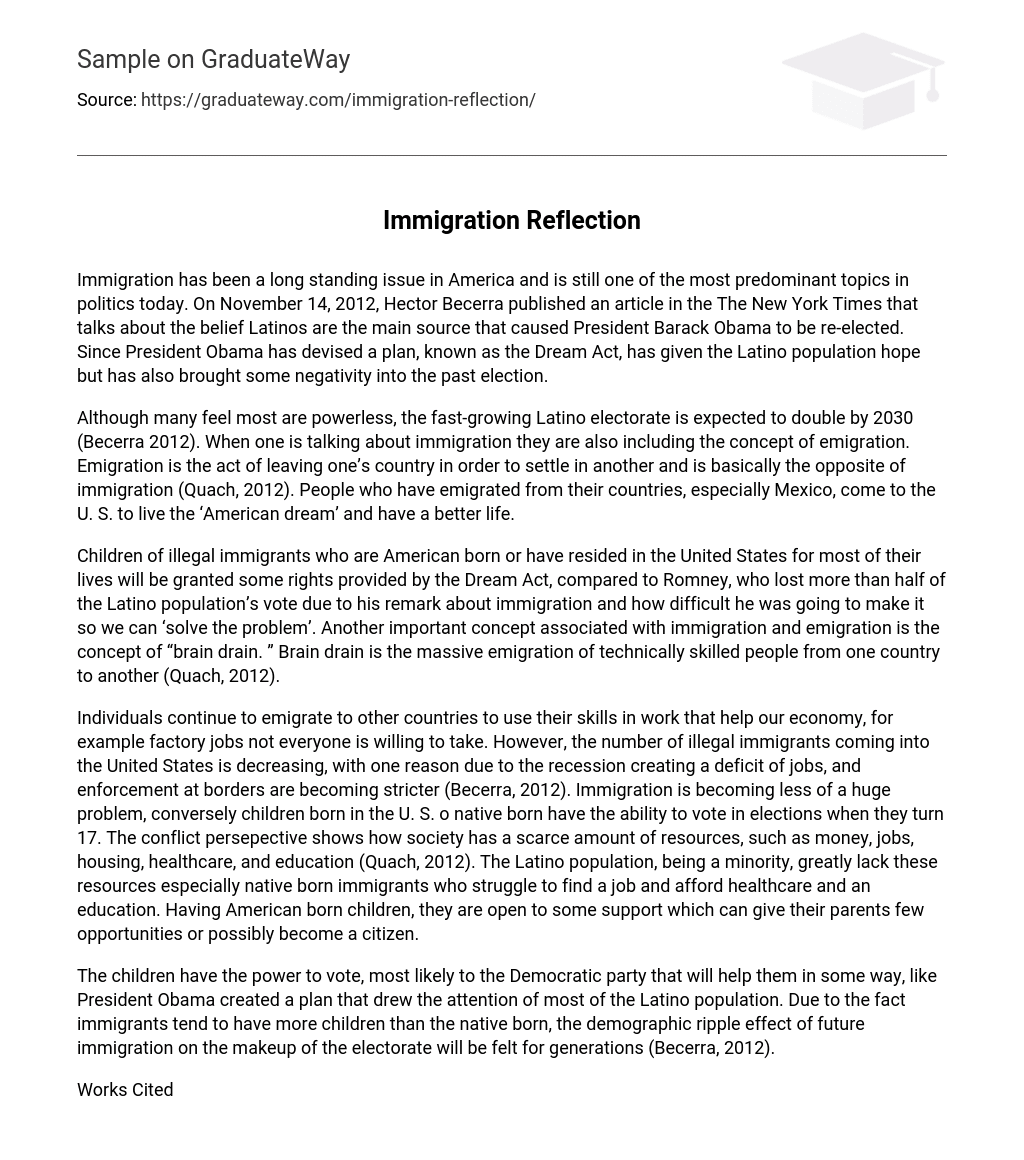The New York Times article by Hector Becerra on November 14, 2012, highlights the continuous and significant political discussion surrounding immigration in the United States. Becerra emphasizes the crucial role played by the Latino population in President Barack Obama’s reelection. The introduction of President Obama’s Dream Act has brought hope to the Latino community but has also faced criticism during the recent election.
Despite the perceived powerlessness of many, it is predicted that the fast-growing Latino electorate will double by 2030 (Becerra 2012). The topic of immigration includes emigration, which involves leaving one’s country to establish oneself in another and is different from immigration (Quach, 2012). Specifically, individuals who have emigrated from their nations, especially Mexico, come to the United States with aspirations of pursuing the ‘American dream’ and striving for a better life.
The Dream Act grants certain rights to children of undocumented immigrants who are either American citizens or have resided in the United States for a considerable period. In contrast, Romney’s stance on immigration and his proposed measures to increase its difficulty have alienated a significant portion of the Latino population. He views the issue as a means to “resolve the problem.” Moreover, the notion of “brain drain” is closely associated with immigration and emigration. Brain drain pertains to the noteworthy departure of highly skilled individuals from one country to another (Quach, 2012).
The number of individuals immigrating to other countries for employment, particularly in jobs that not everyone is willing to take like factory work, continues. However, there has been a decline in the number of undocumented immigrants entering the United States due to various factors such as the recession and stricter border control (Becerra, 2012). Immigration is no longer a major issue.
Conversely, native-born children in the U.S. have the right to vote once they reach 17 years old. From a conflict perspective, it is clear that society has limited resources such as money, jobs, housing, healthcare, and education (Quach, 2012). The Latino population encounters significant difficulties in accessing these resources as a minority group. This is especially true for native-born immigrants who face challenges in finding employment opportunities and affording healthcare and education. Nevertheless, having children born in America can provide support and open up possibilities for their parents potentially leading to obtaining citizenship.
The children possess the ability to vote and generally back the Democratic party, which has a reputation for its aid programs. A notable instance of this is President Obama’s campaign that garnered significant support from the Latino community. Given that immigrants tend to have more offspring than native-born individuals, the impact of future immigration on voting demographics will endure for numerous generations (Becerra, 2012).
Works Cited
Becerra, Hector. (2012-11-14). Latino voter impact ‘will be felt for generations,’ says report. Los Angeles Times. Quach, Christina. personal communication. October 2012)





